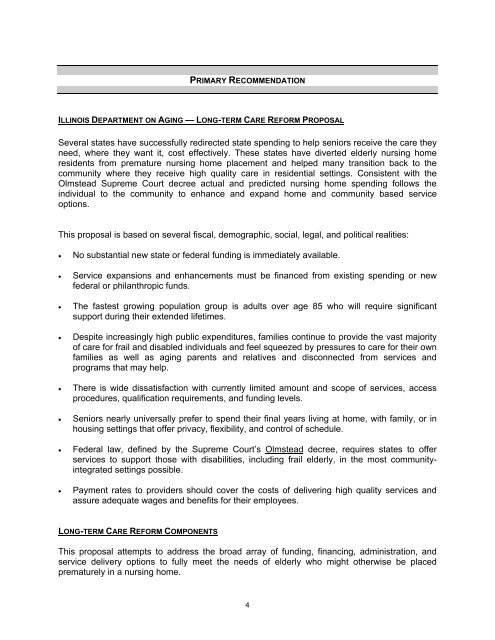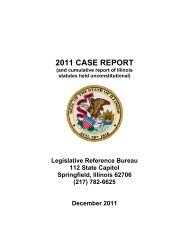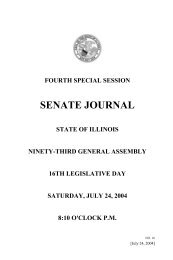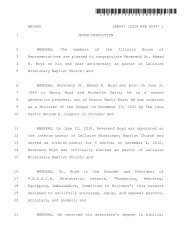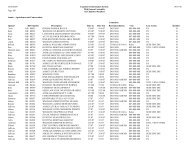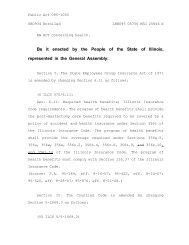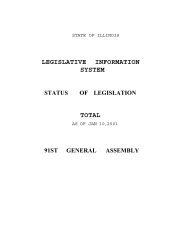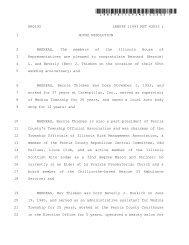Long-Term Care - Illinois General Assembly
Long-Term Care - Illinois General Assembly
Long-Term Care - Illinois General Assembly
Create successful ePaper yourself
Turn your PDF publications into a flip-book with our unique Google optimized e-Paper software.
PRIMARY RECOMMENDATION<br />
ILLINOIS DEPARTMENT ON AGING — LONG-TERM CARE REFORM PROPOSAL<br />
Several states have successfully redirected state spending to help seniors receive the care they<br />
need, where they want it, cost effectively. These states have diverted elderly nursing home<br />
residents from premature nursing home placement and helped many transition back to the<br />
community where they receive high quality care in residential settings. Consistent with the<br />
Olmstead Supreme Court decree actual and predicted nursing home spending follows the<br />
individual to the community to enhance and expand home and community based service<br />
options.<br />
This proposal is based on several fiscal, demographic, social, legal, and political realities:<br />
• No substantial new state or federal funding is immediately available.<br />
• Service expansions and enhancements must be financed from existing spending or new<br />
federal or philanthropic funds.<br />
• The fastest growing population group is adults over age 85 who will require significant<br />
support during their extended lifetimes.<br />
• Despite increasingly high public expenditures, families continue to provide the vast majority<br />
of care for frail and disabled individuals and feel squeezed by pressures to care for their own<br />
families as well as aging parents and relatives and disconnected from services and<br />
programs that may help.<br />
• There is wide dissatisfaction with currently limited amount and scope of services, access<br />
procedures, qualification requirements, and funding levels.<br />
• Seniors nearly universally prefer to spend their final years living at home, with family, or in<br />
housing settings that offer privacy, flexibility, and control of schedule.<br />
• Federal law, defined by the Supreme Court’s Olmstead decree, requires states to offer<br />
services to support those with disabilities, including frail elderly, in the most communityintegrated<br />
settings possible.<br />
• Payment rates to providers should cover the costs of delivering high quality services and<br />
assure adequate wages and benefits for their employees.<br />
LONG-TERM CARE REFORM COMPONENTS<br />
This proposal attempts to address the broad array of funding, financing, administration, and<br />
service delivery options to fully meet the needs of elderly who might otherwise be placed<br />
prematurely in a nursing home.<br />
4


